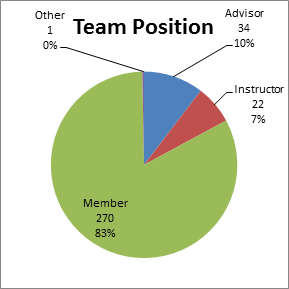Team:British Columbia/Human Practices/IP
From 2012.igem.org

Working with novel concepts such as tunable consortia and distribution of the Dsz pathway, the UBC team became curious of whether iGEM projects would be owned as intellectual property (IP). We also realize that almost all research projects require the use of some sort of IP-related component. Even if iGEM teams are not planning to patent their own work, they will likely come across something (e.g., reagent, strain, etc.) that is already patented by someone else. To use these materials properly, we need to understand how to navigate around the legal aspect of patents.
The purpose of this part of our Human Practices project is to convey IP knowledge to the community in an iGEM-relevant fashion. We surveyed various iGEM teams about their interest in such an IP primer and asked them about what they already knew, what the would like to know, and how they would like the information presented to them. In constructing our guide, we have met up with professions in the field of biotechnological patenting and incorporated the results of these meetings here. In this respect, our project will serve as a connection between iGEM and experts outside our community.
We do not intend to make an argument for or against the idea of intellectual property. Our aim is to create a user-friendly platform for all iGEM teams to learn about relevant IP issues. It will present information in a manner that will allow users to make an informed decision about what stance to take when confronted with IP-related decisions. In addition, the guide will help teams navigate through the processes of obtaining or using patents and build a foundation upon which they can then proceed with their projects.
Contents |
Survey
Our survey methodology was relatively simple. We wanted to confirm our suspicions that other iGEM teams knew as little about "patents and stuff" as we did. We then came up with a set of questions for other teams, trying to evaluate their existing knowledge, their self-assessment of their knowledge, and their desire, if any, to increase that knowledge. Some of us wondered if we'd see evidence of a [http://en.wikipedia.org/wiki/Dunning–Kruger_effect Dunning–Kruger effect].
After implementing our survey using Google Drive, we sent it to team Calgary for testing. They all took it, and verified it worked. Thanks, Calgary! We then sent an email to every team's primary contact, asking them to take our survey and pass it along to their team. We had a great response, garnering 327 individual responses.
Best Respondents
Big thanks to teams Bielefeld, Bonn, Calgary, UC Davis, and Warsaw for having more than 80% of their team members, advisors, and instructors answer our survey! They represent the best parts of the iGEM community, helping others create knowledge without asking for much in return.
Location
We divined respondents' locations by what team they claimed to be associated with.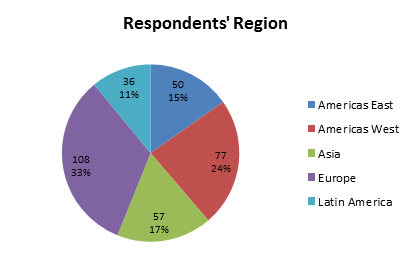
Team Position
Patent Interest & Experience
This was perplexing. We expected respondents who indicated having no experience with patents to skip the next question.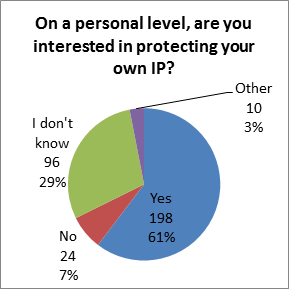
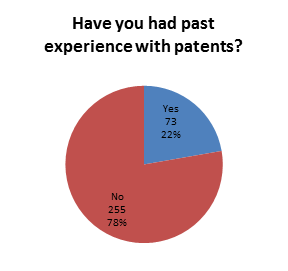
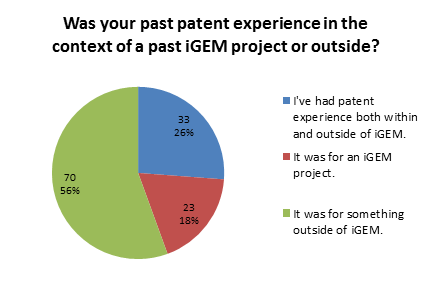
 "
"
